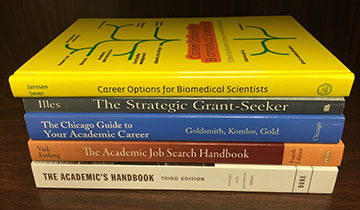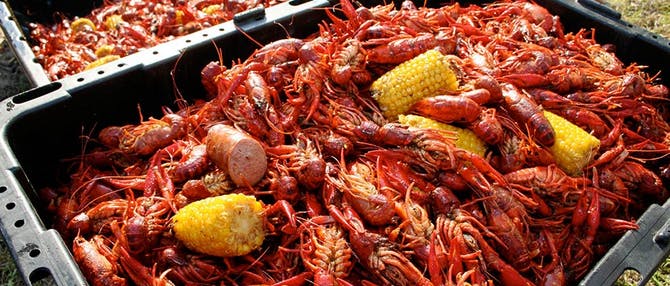Graduate Studies Leading to the PhD in Physiology

The Department of Physiology is an integral part of the School of Graduate Studies and offers graduate programs leading to the PhD and MD/PhD degrees. Our training program is renowned for its intensity and passionate dedication to graduate student mentoring and career development. In turn, our students are highly successful researchers, with many obtaining their own fellowship funding and travel awards to present their research at major national and international conferences.
Our PhD and MD/PhD graduates go on to become future leaders in biomedical science and translational medicine. We also welcome students from the MS in Biomedical Sciences Program, and our MS graduates have successfully transitioned to PhD programs or medical school. Our rigorous training program emphasizes customized career development and a team-based mentoring approach that centralizes the needs of our students as individuals with unique interests and a desire to succeed in a competitive job landscape following graduation. Our goal is not to simply provide you with an advanced degree, but to establish a life-long mentoring and collaborative relationship.

Physiology is by nature a highly translational discipline, and requires the effective integration of knowledge related to biochemistry, pharmacology, molecular biology, and other disciplines. Members of the Department of Physiology at LSUHSC conduct NIH-funded research on the function of organisms at every level of biological organization: molecular, cellular, tissue, organ, organ system, and whole- body integration. This approach maximizes the utility of our research as well as the individuals in training.
The Department of Physiology embraces values and celebrates the value of diversity to our research, training, and teaching missions. We are committed to self-education, reflection, and action to eliminate barriers and disparities in academic access, advancement, and promotion of underrepresented students, faculty, and staff in our department and institution.
Download Department of Physiology Graduate Student Handbook
Research Topics of Interest in the Department of Physiology
Alcohol & Drug Abuse: Biomedical Consequences
- Impact of alcohol and drugs of abuse on simian immunodeficiency virus (SIV) disease progression
- Impact of chronic binge alcohol, SIV, and antiretroviral therapy (ART) on immunological abnormalities
- Mechanisms through which chronic binge alcohol alters key signaling pathways and epigenetics
Alcohol & Drug Abuse: Neurobiology of Stress and Addiction
- Neurobiology of post-traumatic stress disorder (PTSD) and interactions with escalated alcohol drinking
- Neurobiology of traumatic brain injury (TBI) and interactions with endocannabinoid signaling and alcohol drinking
- Neurobiological intersections of pain and addiction, with a focus on alcohol & opioid dependence
Cardiovascular and Pulmonary Pathophysiology
- Pathophysiology and molecular mechanisms of pulmonary fibrosis
- Pathophysiology of congestive heart failure and cardiac fibrosis
- Adverse cardiac and pulmonary effects of inhaled nicotine
Metabolism & Obesity
- Interaction of reproductive hormones and brain peptides involved in feeding behaviors
- Models of diet-induced obesity and metabolic disorder
- Lingual receptors and fat-sensing
Microcirculation
- Microvascular permeability during inflammation
- Lymphatic system physiology, lymph formation and transport
- Effects of alcohol intoxication on the microvasculature of the gastrointestinal tract
The faculty of the Department of Physiology are extensively involved in collaborative research with scientists from the following:
The LSU Health Sciences Center
- Clinicians from the Departments of Cardiology and Pathology
- Scientists from the Departments of Biochemistry & Molecular Biology, Cell Biology & Anatomy, Genetics, Pharmacology, and Microbiology, Immunology & Parasitology
- Alcohol and Drug Abuse Center of Excellence
- Cardiovascular Center of Excellence
- Neuroscience Center of Excellence
- Stanley S. Scott Cancer Center
Tulane University Neuroscience Program
Pennington Biomedical Research Center

Information for Admissions and Application Procedures
Admission to the PhD program in Physiology is based on transcripts, recommendations, and GRE scores on the General Test. A letter defining the student's career goals is required as well. Applications should be completed by April 1 for matriculation in August.
Requirements for Applications
- Official Transcripts
- Official Report of GRE Scores (Our GRE code is 6600)
- Goal Letter that outlines Short -and Long-Term Goals
- 2 Letters of Recommendation
- TOEFL scores (for international applicants; our TOEFL code is B886)
For application materials or more information contact:
Dr. Scott Edwards
Associate Professor of Physiology
Department of Physiology
Louisiana State University Health Sciences Center
1901 Perdido Street MEB 7205
New Orleans, LA. 70112
Telephone: 504-568-6171
Fax: 504-568-6158
E-mail: sedwa5@lsuhsc.edu
Financial Aid
Graduate student fellowships are available on a competitive basis for PhD and MD/PhD candidates while enrolled in the School of Graduate Studies. Awards are $26,000 per year and provide a full tuition waiver. PhD candidates will also be mentored to apply for individual fellowships through the National Institutes of Health and other programs such as the American Heart Association.
Cost of Study
Tuition is $11,835 per year for Louisiana residents and $21,766 for nonresidents. In addition, activity and student health fees of about $300 per year are required.
Student Benefits
https://www.lsuhsc.edu/orgs/studenthealth/insurance/
For more information, visit the School of Graduate Studies web site.
Living in New Orleans
The four seasons in New Orleans are: Carnival (Winter), Crawfish (Spring), Snoball (Summer), and Football (Fall). Our campus is located in the heart of downtown New Orleans and is heavily surrounded by world-famous restaurants, bars, and Mardi Gras parade routes. Our students (and faculty) can often be seen together downing pints and crawfish at Bayou Beer Garden or The Bulldog Mid-City after hours.

